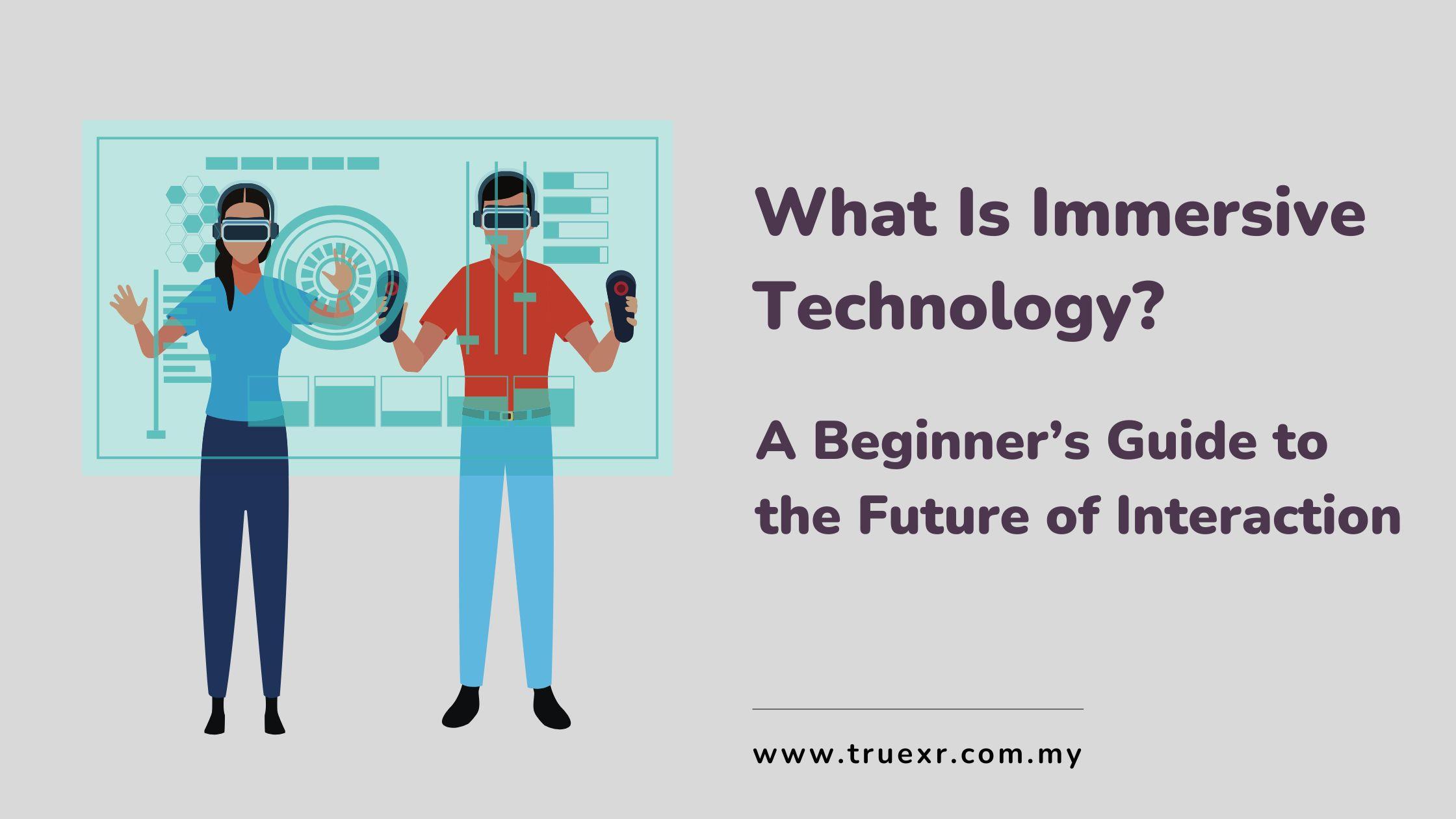What Is Immersive Technology? A Beginner’s Guide to the Future of Interaction

In a world where digital experiences are becoming increasingly realistic, immersive technology is leading the charge. But what exactly is immersive technology, and why is it gaining so much attention? This beginner-friendly guide explores the basics, types, applications, and the transformative potential of this groundbreaking field.
What Is Immersive Technology?
Immersive technology refers to digital innovations that blend the physical and virtual worlds to create highly engaging, interactive experiences. Unlike traditional media that you merely watch or listen to, immersive technology invites you to step inside the experience—feeling as though you're part of it.
Whether it’s walking through a virtual art gallery, simulating flight in pilot training, or trying on clothes in a digital fitting room, immersive technology goes far beyond passive interaction. It’s about creating a sense of presence, where users feel mentally and physically engaged with a computer-generated environment.
Types of Immersive Technology
There are several types of immersive technologies, each with its own level of interaction and depth. Here are the most prominent ones:
- Virtual Reality (VR):
VR places users in a completely simulated digital environment, typically using a headset. It blocks out the physical world, replacing it with a 360-degree virtual world. - Augmented Reality (AR):
AR overlays digital elements—such as images, animations, or information—onto the real-world environment. Think of mobile apps that let you see how furniture would look in your living room using your phone’s camera. - Mixed Reality (MR):
MR is a hybrid of VR and AR, where digital and physical objects interact in real-time. It allows users to engage with both worlds simultaneously, often using specialized headsets. - Extended Reality (XR):
XR is an umbrella term that covers VR, AR, and MR. It represents the full spectrum of immersive technologies.
Why Immersive Technology Matters
Immersive technology is more than just a futuristic gimmick—it’s fundamentally changing how people learn, work, communicate, and experience the world. Here’s why it’s becoming increasingly important:
- Enhanced Learning:
Students can explore historical events or scientific concepts in 3D, making education more engaging and memorable. - Improved Training:
In fields like aviation, medicine, and engineering, immersive simulations allow for risk-free, hands-on training. - Increased Engagement:
Immersive marketing and digital storytelling captivate audiences more effectively than traditional media. - Remote Collaboration:
Teams working remotely can meet in virtual spaces that mimic real-world interactions, bridging communication gaps.
Real-World Applications of Immersive Technology
Let’s take a closer look at how immersive technology is being used across different industries:
- Healthcare:
VR is being used for therapy, pain management, and surgical simulations. AR helps surgeons visualize internal organs during operations. - Education:
Virtual classrooms, interactive science labs, and field trips to space or ancient civilizations are now possible with immersive tools. - Retail:
AR apps let consumers visualize products before buying—whether it’s trying on clothes virtually or seeing how a sofa fits in their home. - Architecture & Design:
Designers can create walk-throughs of buildings before construction, helping clients understand spatial relationships and aesthetics. - Entertainment & Gaming:
Video games and films are more immersive than ever, offering users a chance to live out stories and adventures. - Tourism:
Virtual tours of landmarks and destinations allow people to explore the world without leaving home.
The Future of Interaction
As immersive technology continues to evolve, it will redefine what it means to interact with information, environments, and even other people. Here are some trends shaping the future:
- More Affordable Devices:
As hardware costs decrease, immersive experiences will become more accessible to everyday users. - AI Integration:
Artificial intelligence will enhance realism by making digital environments more responsive and adaptive to user behavior. - 5G and Faster Internet:
Higher data speeds will support smoother, more complex immersive experiences, especially on mobile devices. - Wearable and Haptic Tech:
Smart gloves, suits, and other gear will allow users to touch and feel digital objects, adding another layer to immersion. - Expanded Use in Everyday Life:
From virtual job interviews to remote doctor consultations, immersive tech will integrate more seamlessly into daily routines.
Challenges to Consider
Despite its promise, immersive technology faces a few hurdles:
- High Development Costs:
Creating high-quality immersive content requires specialized skills and resources. - User Accessibility:
Not everyone can afford or use the necessary devices due to cost or physical limitations. - Ethical and Privacy Concerns:
Collecting user data in virtual environments poses risks that must be carefully managed.
Final Thoughts
Immersive technology is no longer just science fiction—it’s a powerful, evolving tool that’s reshaping how we connect with the world. From entertainment and education to healthcare and commerce, its applications are vast and growing. For beginners, understanding this technology is the first step toward embracing a future where interaction isn’t just digital—it’s deeply immersive.
As the lines between the real and virtual continue to blur, immersive technology will be at the forefront of this transformation, creating experiences that are more engaging, effective, and unforgettable than ever before.
- Art
- Causes
- Crafts
- Dance
- Drinks
- Film
- Fitness
- Food
- Jogos
- Gardening
- Health
- Início
- Literature
- Music
- Networking
- Outro
- Party
- Religion
- Shopping
- Sports
- Theater
- Wellness

